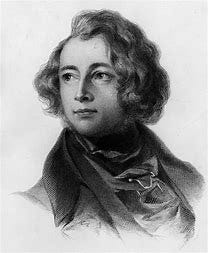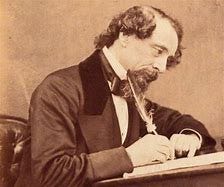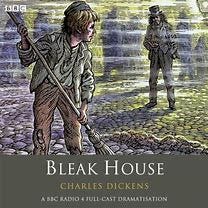It is a stunning feat for any novelist to write five novels that any reader ranks among their favorites. So I’m beyond stunned each time I realize that the British author Charles Dickens (1812-1870) wrote ten of my favorite novels.
Charles Dickens’s rendering of a panorama of characters is beyond brilliant. It’s sublime. He’s a peer to Shakespeare. Out of Dickens’s fecund imagination arose character after character – vivid, real, well-rounded (quirks and all), and memorable.
His wit and humor make us laugh. His tender-hearted compassion toward the ground-down of this world makes us cry. He guides us to be aware of the struggles and suffering of the destitute, the malnourished, the neglected, and the unjustly treated. And ultimately he shows us that no matter how dark and sordid one’s situation may become, good-natured companionship and faithful love will get us through it – and maybe even win out in the end.
Besides the Christmas novellas, we have 14 completed novels. Here’s how I rank them, from fourteenth to first:
14. Hard Times
I’ll keep it simple: Just not good literature.
13. Barnaby Rudge
Lacks his usual spark. Tedious.
12. A Tale of Two Cities
Displays none of his gifts as a writer. Falls flat.
11. Oliver Twist
Lots of weak characters, including Oliver himself. But a must-read in our childhood or our youth or both — and a story we remember for life.
10. Little Dorrit
Lacks vivacity. Has no buoyancy. A melodrama that drags on and on.
However, there are some very fine passages. Its strength is its pathos. The characters are exquisitely presented, and so admirable. And it holds some profound truths, especially about greed and vulgar ambition.
9. The Old Curiosity Shop
Too sentimental, especially the drawn-out death of Nell.
But it’s a delightful story. An alarming tragedy, with an angelic child and a feeble grandfather. It’s about the destructive power of rationalization, and how when we get fixed in a role we become like a puppet.
8. Dombey and Son
We might struggle to find one character we care about.
And yet it’s gripping. It has some great scenes. And it’s full of insight into society. The theme is pride – or how getting lost in worldly self-importance can make us inhumane, callous, and cruel. And it’s his most feminist novel.
7. Bleak House
A dark tragedy. Is it unpleasantly dark or marvelously dark? You decide.
It’s well-textured, with a muscular plot. It’s about self-interest, formality, and lack of empathy. It’s Dickens’s indignation over people staying deaf, silent, and passive in the face of injustice. It’s about defiantly living with responsibility in the face of the decay of noble ideals flowing from love.
6. David Copperfield
A great and emotionally intense story about the development of a boy into a youth and young man. It presents Dickens’s poetic view of life and it deals with the moral quality of individuals.
And how could we not appreciate Mr. and Mrs. Micawber? Mr. Micawber, always in crisis, always looking forward. Mrs. Micawber, all that hopeless reason in the face of an unreasonable world. And both of them, with such warm kindness and so full of exuberant, irrepressible joy and hope.
5. Nicholas Nickleby
Yes, there are too many automatic responses by characters who lack complexity. And, yes, it lacks the weight of more important novels.
But what a great story, with so many vibrant scenes! The child victimization, the brutality, the viciousness, the vindictive rage – we watch them battle it out against all that warm, genial, jubilant energy!
How can we forget the profoundly twisted villain Ralph Nickleby? Pouring out all his gnawing self-hatred on his noble nephew?
How can we fail to esteem Nicholas? He’s a good-hearted young man out to prove he’s a gentleman, and he triumphs heroically over all obstacles and evils that threaten him. Nickleby is about people with integrity who are misused but who ultimately prevail.
4. Great Expectations
There’s one huge problem. The ending. A friend of Dickens persuaded him to change the sad ending to a pleasant ending, which spoils the grave, subtle pathos of the story and leaves the book flawed.
Other than that, it’s a perfect novel. Profound and intense. It shows a mixture of human motives and the importance of honesty, self-knowledge, and self-awareness. It’s about Pip’s motives. This young man vacillates between wanting a life of humble usefulness and a life of empty comfort. It’s about how we can’t let anything cheapen or distort our values – or harm and override our empathy and our connection with the people who love us for who we really are.
3. Martin Chuzzlewit
Crackles with brilliance. It’s about self-worship, and hypocrisy. It’s about the motives in our soul.
There’s Mrs. Gamp. She’s a marvel. Avaricious, dishonest, and base – and so uproariously funny! The female Falstaff.
And above all there’s Seth Pecksniff. His obsequious personality – all smiles and sunshine and platitudes while he carries out his odious scheming — marks him as by far Dickens’s best satiric character.
2. Our Mutual Friend
At least a dozen exceptional characters – the most of any Dickens novel.
Illuminates the individual soul and does so brilliantly. The hypocrisy, the snobbery, the callousness, the shallowness. And the wise and good among us and those who awaken and rise to become wise and good.
Dickens shows how each of us can determine our moral direction in a corrupt society. We can assume a moral stance against social pressure. We can break out from the unprincipled social dust-heap and become a free moral agent.
It’s about the dying of the old self and rebirth of the new. It’s about regeneration and redemption. First we understand our situations and understand ourselves. Then we choose freely to act from integrity. We become aware of the precious gift of life and we move from cruelty to a loving heart. And we can even find human connection in a society in decay – and the like-minded can form themselves into an island refuge.
Dicken’s last completed novel is serious but with some of that merry manner of Dickens’s early novels, and some high humor. It’s got comic vision without sentimentality and social satire without cynicism. What more could we ask for? Well . . .
1. The Pickwick Papers
Extraordinary! Sublime comedy. The wildest farce ever written.
The comic situations are written with brilliance. What escapades! Careening all over London through one hilarious adventure after another.
At the same time, so much benevolence, unshakable fraternity, loving acceptance, and reconciliation. Pickwick calls us out of a cold and cramped and narrow and rigid life – out of being puppets – into a life of supernatural exuberance and joy. Dickens shows us that it is triumphant optimism that renders life’s darkness manageable. That’s what we all yearn for, and yet we’re also afraid of it.
And the ending! It doesn’t matter how they got there that night, but the characters are already in Paradise and nothing will take their spiritual ease away from them. Their personalities unfold with all the delight of some perfect impromptu play.
Ultimately, Dickens is daring us, isn’t this how life should be?: The Story exists for us, and we know it. We step into the land of people whose interiors reach the sky – and each of us becomes, fully and sublimely, our true immortal self.















Love love love Pickwick Papers. Love Sam Seller’s character! Mr. Pickwick in jail, getting caught in a lady’s bedroom, Mr. Sondhrass’ escapades, Christmas in the countryside...just reminds me of winter vacation, snow, quintessential London and it’s countryside...maybe because I read/watched it during that season. Thanks for the roundup and the reminder of what a great writer Dickens is!
Ahem. I've read "Tale of Two Cities" which is far down on your list I see, shall make a point to become more familiar with you top choices :)